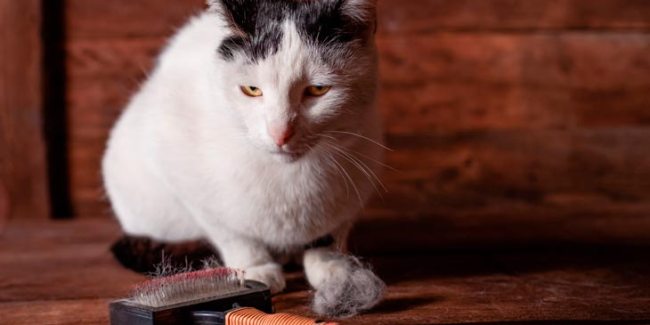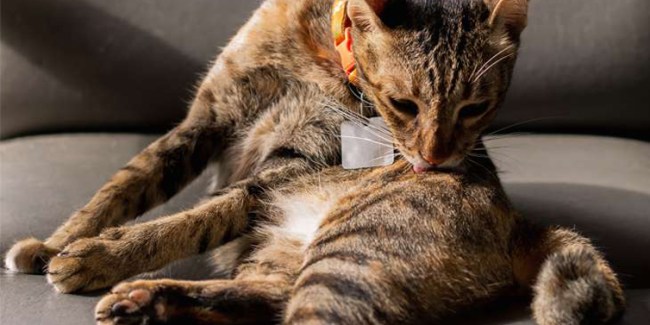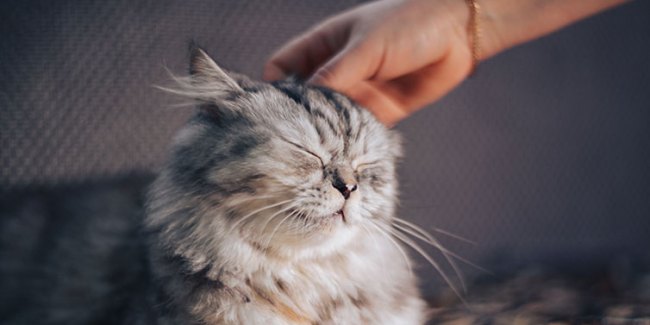Allergies: Pooches and Purries
As Spring approaches, here in sunny South Africa, we are emerging from a chilly winter and are looking forward to warmer weather, blossoming plants and outdoor living once again.
However, pet owners may also be bracing themselves for allergy season, which usually occurs as seasons change, and which can affect our pooches, our furry purries and, of course, us. Scratching, rashes, itching, rubbing, redness, hair loss, scabs and lesions may all begin to make your furry friends’ lives, and yours, miserable. Certain conditions, such as bronchitis and asthma, may be made worse.
What exactly causes these symptoms, which are so debilitating and irritating for your pets and how can they be prevented and treated? Clearly, if we can find some answers to these questions, this will help us to understand and deal with the problem of allergies for our furry friends.
We have, as always, done our research and will try to answer some of the questions you may be thinking and even worrying about. So … let’s get prepared!

“My poor little Maltese, Madame, is scratching herself until she bleeds. What could be causing this and how can it be treated?”
Madame feels itchy, so she scratches with her claws, which may damage the skin, causing more scratching which may eventually cause infections. So let’s consider the four main causes.
1. Flea Bite Allergy
If Madame is itchy around her rear end, tail, lower back, tummy and inner thighs, it is possible that she is allergic to flea saliva. She may also be suffering from hair loss, redness, and darker skin areas. Fleabites can continue to itch weeks after the bite. Attempts to prevent the fleas from biting her in the first place are very important. Consistent anti-flea treatment should be used which may consist of chews, topical drops or special medicated collars. Ensure that her environment, bedding, toys and normal collars are thoroughly cleaned to remove all traces of flea eggs.
However… never fear because Bravecto® is here!
With Bravecto® Chews, a single treatment provides dogs with 12 weeks protection against fleas and ticks. Bravecto® Spot-On provides dogs with 4 months’ tick protection and 6 months flea protection.
2. Flea Bite Allergy
There are several possible parasites which may be responsible. Mange, which is caused by microscopic mites that burrow into the skin, and lice, which are tiny insects which feed on blood, can cause severe itching and irritation to your pets. This can occur around the ears, elbows, face, paws, chest and stomach.
Your vet will be able to diagnose if these little beasties are responsible, by looking at a skin scraping from Madame under a microscope. Chewable and topical treatments are available, which should be continued for at least two months.
3. Food allergies
Pooches who are allergic to certain foods are usually itchy on their stomachs, groin, face, ears or paws. Types of foods which may trigger allergies are usually meat, especially lamb, beef or chicken. Dogs are rarely allergic to grains, such as rice or wheat.
Diagnosis is not easy! Different foods must be tried, one at a time, for 8-12 weeks. Your vet will probably advise you to do the following:
- Feed a diet of a protein which your pooch has not eaten before e.g. fish, or a hydrolyzed protein, for 8-12 weeks.
- Do not feed Madame with any treats or ‘human’ food during this time.
- If the itchiness decreases, start a new protein food trial, after the 8-12 week period.
- If the itching starts again, then do not feed Madame with this food.
- Once the protein responsible for the allergy is identified, then obviously exclude this from the diet.
4. Atopy
This is caused by environmental allergens such as dust mites, pollens, grass, household detergents and fabric softeners. These enter your pooch’s body through any small lesions in the skin. Itching is often seasonal. Try to decrease the amount of chemicals you use in the house – rinse cleaned floors with water, try to avoid using fabric softeners on poochie’s blankets and coats, and rinse thoroughly. Your vet will advise you.
General Treatments
Always consult your vet and do not try to prescribe for your doggie yourself. Never use any medicine intended for humans for your dog.
1. Anti-histamines
These medications only tend to work in less than 30% of itchy doggies. Should you suspect your pet has had an allergic reaction, contact your vet to see if your antihistamines may be useful.
2. Cortisone
Cortisone usually relieves itching, but should not be used for long periods. Also, it should not be used for fungal infections as it can make these infections worse. It can cause increased thirst, hunger and urination in the short-term. Long-term use can cause skin thinning, poor healing, muscle weakening, obesity and Cushing’s disease. Use of cortisone must be prescribed and carefully monitored by your vet.
3. Topical treatments
Special shampoos, sprays, creams etc, containing cortisone, may be prescribed. Antibiotic or anti-fungal medications may also be applied to the skin.
4. Omega 3 and 6
These are special oils which help to strengthen your pooch’s skin barrier, helping to keep allergens out. They may also act as anti-inflammatories. They have no bad side effects and can be used long-term. It will take up to two months to see the effects of these.
Allergies in Cats

“Help! My beautiful Maine Coon kitty – Henry – is so miserable. He is scratching so badly that some of his luxurious fur is falling out. What could be causing this?”
As with dogs, cats’ allergic reactions usually result in skin problems, causing irritation, itching and scratching. There are three main causes: food, fleas and atopy. Certain drugs, parasites and contact dermatitis may also cause skin reactions.
Let’s see if we can give you some advice about Henry and his fellow purries, but please bear in mind that you should consult your vet to diagnose and treat this condition.
1. Flea allergy
Some cats are allergic to flea saliva. If Henry is scratching his neck, stomach, sides, thighs and the ‘start’ of his tail, it is possible that he has been bitten by fleas, to which he is allergic. He may also have what are known as ‘hot spots’, or certain areas which become infected. Check to see if you can spot any of these tiny beasts or their faeces, which look like black dots, on him.
Your vet will look for obvious signs of these nasties on Henry and may also do a skin test as flea allergy can look like other skin conditions such as the presence of parasites or infections. As with many other allergies and skin problems, prevention is always better than cure. There are products available for cats, as with dogs, to prevent flea infestations, such as chews, external drops and collars (Good luck with those!).
Your vet may prescribe antihistamines, steroids (for short term use only) and Omega 3 and 6, to provide Henry with relief from itching. Special shampoos are also available. However, there is no permanent cure for flea allergy, but it can largely be prevented by using Bravecto® which will protect Henry against fleas and ticks for 3 months.
2. Food allergy
As with dogs, your purry may be allergic to one or more ingredients in her/his food. Henry may have developed an allergy to milk and beef products, cereals, eggs or chicken. Itching and scratching, caused by an allergic reaction to certain foods, may begin at any age, whether or not he has been eating these foods for years.
Your vet may start your kitty on an ‘exclusion’ diet for 8-12 weeks. This means feeding him/her on foods with ingredients which he/she has not eaten before. Your vet may suggest that you start kitty on certain proteins, such as fish or venison, which are not usually found in pet foods. Another possibility is a hypoallergenic diet. If the itching improves on this diet, then your cat is obviously allergic to the protein in /her previous food. You can also start to introduce a new protein for a couple of weeks to see if the symptoms return. If so, kitty is allergic to this protein.
3. Atopy
This is an allergy caused by minute airborne fragments like house dust mites, pollen, moulds, and dander, which is tiny bits of animal skin in the air. As you may realise, this allergy is not easy to treat.
Symptoms include itching on the paws, lower chest, stomach and face, which may be seasonal, especially if pollen is the cause. “Hot spots” may be found, where your purry has scratched and the skin has become infected. As we have seen with Henry, your kitty’s hair may begin to fall out. These symptoms are usually seen initially at around 1-3 years of age, but can occur in kittens and older cats.
Your vet will probably ask you for a detailed history of your kitty’s skin problems, as she/he has to rule out other possible causes of itching, such as lice, fleas, mites, infections and food allergies first. Your vet may then test your cat’s blood for various allergens.
Unfortunately, there is no cure for atopy and it is a lifelong condition. However, it can be managed by some or all of the following means:
- If Henry’s itching is fairly mild and largely seasonal, your vet may suggest the use of an “Elizabethan collar” and/or special socks to prevent scratching. (Good luck with these!)
- Using a series of injections containing minute amounts of the allergen, to accustom Henry’s system to the offending allergen. This apparently gives some relief in 75% of cases of atropy.
- Using drugs, medicated shampoos and conditioners.
- Removing as much of the allergen from your purry’s environment as possible. This would involve frequent vacuuming of your house and thorough washing of bedding as often as possible.
And finally …
Lifelong treatment and management of allergies may be essential, especially in the case of atopy. However, there is no question that the relief experienced by your doggie or kitty, and you, will be well worth your efforts.
Sources:
www.allergyfoundation.co.za
tah.co.za
citivetgardens.co.za
familyvet.co.za
Subscribe to our Newsletter
Get to know your furry friend better! Sign up for all things dog- or cat-related.
The Hairy Facts about the dreaded hairball
12 April 2021
Help! My dog’s barking mad! Volume 2
12 April 2021
Your Itchy, Scratchy Cat – All About Cat Skin Problems
12 April 2021
The Dog’s Diet: A Bone of contention?
01 April 2021
Mango Fly Worms: How to Spot and Eliminate them
Posted on November 28,2019
Managing Mange And Mites In Your Dog
Posted on June 11,2018
Why Do Cats Purr and How? Learn What Your Cat Is Saying
Posted on October 14,2020
How to Get Rid of Ear Mites in Dogs
Posted on November 06,2019









